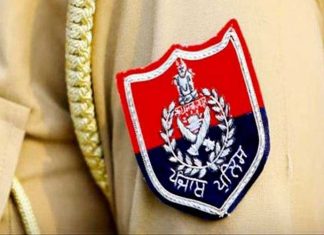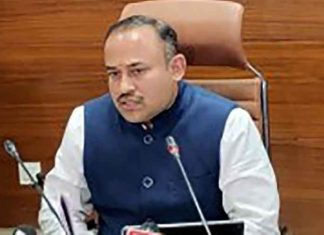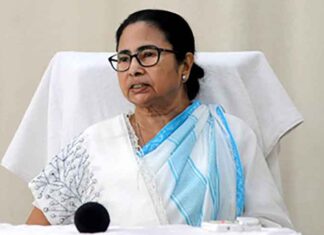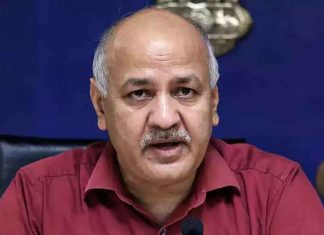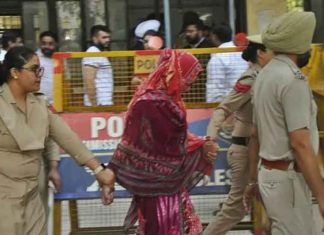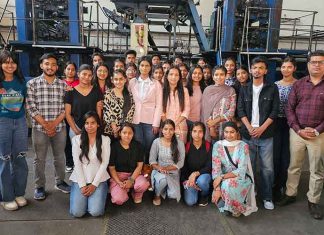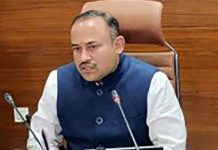Chandigarh, May 5, 2020 (Yes Punjab News)
As the state prepared to handle a large influx of NRIs from other nations and stranded people from across the country, Punjab Chief Minister Captain Amarinder Singh on Tuesday issued a series of directives to check the spread of the deadly Covid, including strict directives to the Health Department to ensure mandatory screening of all such returnees, with institutional quarantine for those coming back from high-risk regions of India, and hotel/home quarantine for the NRIs.
To deal with the additional pressure, the state government has also decided to rope in universities and state-run labs, with the Chief Minister sanctioning an immediate amount of Rs 12 crore for equipment and operational expense for 6 such institutions, namely Regional Disease Diagnostic Lab (RDDL), North Zone Jalandhar; GADVASU, Ludhiana; Guru Nanak Dev University, Amritsar; Punjabi University, Patiala; Punjab Biotech Incubator, Mohali, and Punjab Forensic Lab, Mohali.
Further, the state government has decided to come to the rescue of the central government testing facilities which are unable to enhance their capacities due to non-availability of kits from ICMR. The Chief Minister has directed such centres to purchase kits for use for testing in Punjab from the open market, for which the state government will bear the expenses. It may be noted that the state is currently testing 2800 persons a day, a significant increase from 1500/day last week.
The Chief Minister also directed the DCs to prepare a list of private hotels that can be utilised for paid quarantine, while asking the Health Department to make an inventory of functional/non-functional private hospitals.
The decisions were announced during a Video Conference held by the Chief Minister with health and medical experts. During the meeting, Captain Amarinder also ordered an immediate readiness audit of level 1 and 2 facilities, pointing out that as of now, 21000 Punjabis settled abroad want to return home. He also directed the expert committee to formulate its own guidelines and protocols and not take any chances.
Making it clear that he did not believe in the reliability of the certificates that the respective nations were required to give to the returnees, the Chief Minister said the NRIs should be given the option for quarantine, on payment basis, in hotels and at home, under supervision, pending testing, which should be done within 4-5 days of arrival.
On those coming from within the country, the Chief Minister said given the Maharashtra (Nanded) experience, wherein 27% of the more than 1000 Punjabis who had returned so far had already shown positive results, the state government would take no chances. All such returnees would have to be quarantined in state centres, he added.
Earlier, in his detailed presentation, Dr KK Talwar underlined the need for RT-PCR testing of all those returning from red zones around the country. If positive, they should be shifted to Level 1, 2 or 3 healthcare facility as per the clinical status, and if negative, they should be strictly home quarantined for 14 days, put on COVA app, and follow-ups done by health teams.
Punjab has also stepped up community surveillance, with 50 lakh tests conducted so far, Principal Secretary Medical Education and Research, DK Tiwari informed the meeting. The community surveillance was being carried out mainly to identify and track those who had sneaked into the state without being screened at the entry point, he said. The immediate close contacts and family members of such persons were also being screened.
ACS Vini Mahajan pointed out that Punjab would be the first state to adopt a scientific strategy for viral load testing, going beyond ICMR guidelines. The Centre for Policy Research (CPR), in association with various US and Indian universities, had come out with a comprehensive plan for such testing, she said, adding that experts from Johns Hopkins University will be providing guidance on this.
The 4-pronged strategy developed by CPR builds on the Government of Punjab’s existing strategy in two ways: (a) by adopting a more extensive and structured form of risk stratification across the entire state and b) by putting in pace an active learning strategy to continuously improve the risk stratification based on data generated. The 4 pillars of the strategy are: developing risk stratification of areas, understanding risk of infected individuals, risk stratified random testing, pooling of samples as per ICMR guidelines.
Vini also disclosed that from not a single local manufacturer in March, the state now had 28 registered and approved PPE kit manufacturers, and four for production of N95 kits.
In terms of other preparedness, the meeting was informed that university campuses and hostels were being roped in, at Level I, to quarantine those with mild symptoms of Covid. For Level II, 500 beds were ready at 24 centres, which included all district hospitals, as well as isolation centres at Phagwara and Khanna. Private hospitals were being involved to scale up the facilities at Level II and III.
For YesPunjab updates on TELEGRAM, download TELEGRAM and CLICK HERE TO SUBSCRIBE




